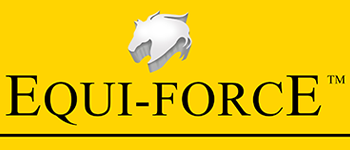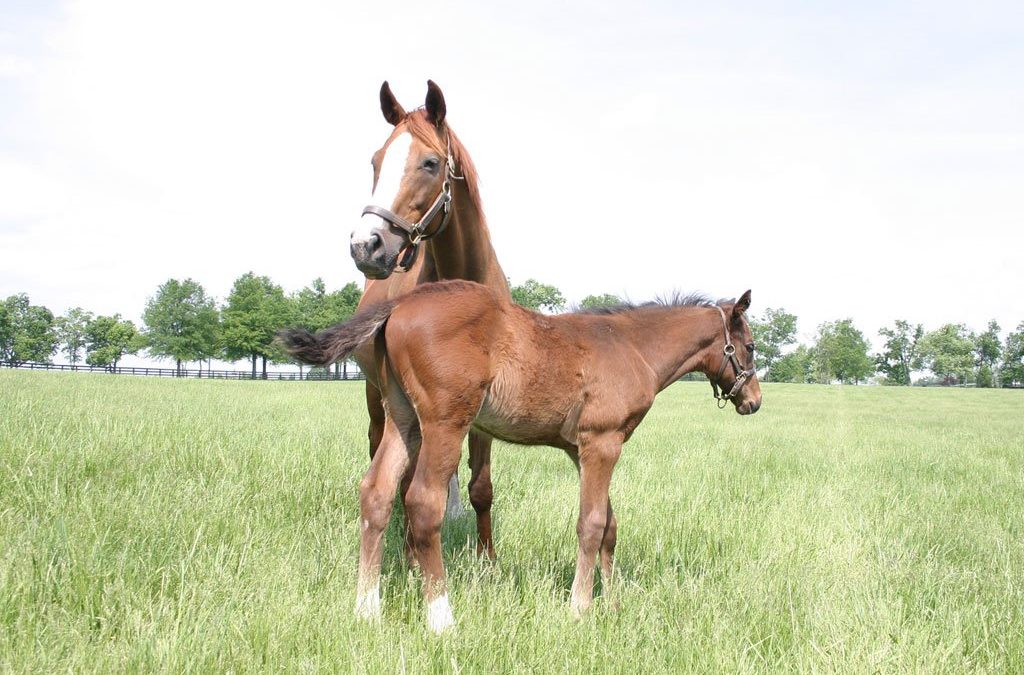The Scoop on Protein
The myths and misconceptions about protein are abundant. Have you ever known someone who attributed their horse’s bad behavior with protein intake or heard someone say high protein levels can cause developmental problems in foals? These claims against protein are incorrect and have unfortunately carried on in horse owner’s feeding methods. Here is the scoop on the two most common myths associated with protein and the truth behind them.
Myth – Protein Makes Horses Behave Badly
This common myth is one that drives equine nutritionists crazy! Unfortunately, feed companies have unknowingly helped perpetuate this misconception by marketing feeds as “10, 12, or 14%” which seems to indicate the only important nutrient in horse feed is protein. That is what those numbers indicate – crude protein level – not energy or caloric density.
Overfeeding calories – not protein – can contribute to hyperactivity and fractious behavior in horses. Also, sugar content of the feed may play an even bigger role in creating a misbehaving horse. Ingested sugars and starches cause changes in blood sugar concentrations and (much like humans) some individual horses appear to suffer the same sensitivity to the fluctuation, while others are not bothered at all.
Every day, the horse has a minimum requirement for energy, protein, vitamins, and minerals. If you limit any of these to below the requirement, growth, milk production, and performance will subsequently also be limited. If you feed above this requirement, protein, fats, and carbohydrates simply become available as excess calories.
Therefore, if a horse is having a behavioral problem that can be linked directly to feeding (all other medical conditions must be ruled out), it is best to lower the amount of concentrate intake as a whole – not just one nutrient or another. Continue feeding as much forage as possible and add a protein, vitamin, and mineral supplement that does not contain any extra calories from carbohydrates or fats. This way, caloric intake and sugar are limited, which are the root cause of feeding-related excitability in horses. If the horse is a fairly easy keeper and needs to eat more to maintain weight, use concentrates low in whole grains and with more fat and fiber. These feeds supply the same calories as high grain feeds, but keep blood sugar changes to a minimum.
And most importantly, if a horse is acting badly, it will benefit from more time outside the stall and in work. No feeding modifications can substitute for expending energy the good old fashioned way.
Myth – High Protein Diets Cause Development Problems in Foals
To put it simply, protein is not the cause of developmental problems in growing horses.
This can be best explained by Lori K. Warren, Ph.D., P.A.S., in a paragraph taken from her paper that was at the Proceedings of the 2002 Alberta Horse Breeders and Owners Conference:
“Genetics, exercise and nutrition all play a role in the development of healthy bones, and as a result, the same factors are also linked to the occurrence of developmental orthopedic disease (DOD) in young horses. Most confusion regarding DOD is related to nutrition. Mineral imbalances have been well-documented as a cause of DOD. Excessive protein was blamed as a cause in the 1970’s, but later studies disproved this connection. Feeding more protein than the foal needs does not increase growth rate above that achieved when the diet just meets protein requirements. Unfortunately, the diets of many young horses are kept quite low in protein for fear of causing developmental problems. Restricting protein will not result in improved bone growth, and can actually be harmful to the foal by decreasing feed intake, growth rate and skeletal development. On the other hand, overfeeding energy will result in developmental problems, particularly if protein and mineral intake are not increased at the same time. Again, the horse owner must be able to differentiate between the energy and the protein content of the diet. For growing horses, protein and minerals must be in proportion to the energy in the diet.”
One other note, too much starch and sugar in the diets of growing horses has been implicated as a causative factor in the development of orthopedic problems. High starch feeding causes a disruption to the normal secretion of the hormones that are directly involved in cartilage maturation into subchondral bone, which may result in abnormalities. Here again, the best advice is to use feeds higher in fat and fiber, low in starch, and with the correct amount of protein, vitamins and minerals to help combat this problem in growing horses.
Take Home Message
Protein should not be viewed as a dangerous nutrient; it is one of many vital, daily requirements of the horse that impact growth, milk production, and performance. Remember that overfeeding calories – not protein – can contribute to hyperactivity and that if there is a behavioral problem that can be linked directly to feeding, lower the amount of concentrates as a whole, not just one nutrient or another. Understand what your horse’s protein requirement (in addition to all nutrient requirements) is and, if needed, reach out to an equine nutritionist for additional help on formulating a correct and balanced ration.
This blog post was originally posted on Wednesday, October 12th, 2011 at Equine Nutrition and Health Services Blog. Blog article was re-posted with permission from blog owner, all rights reserved.

